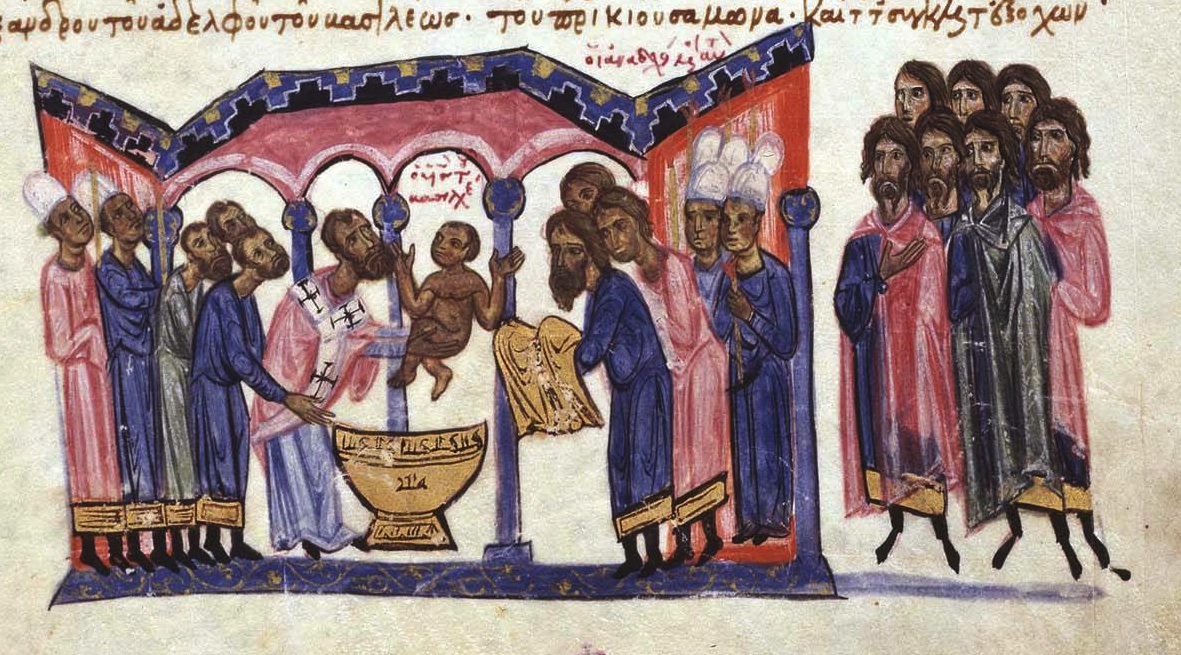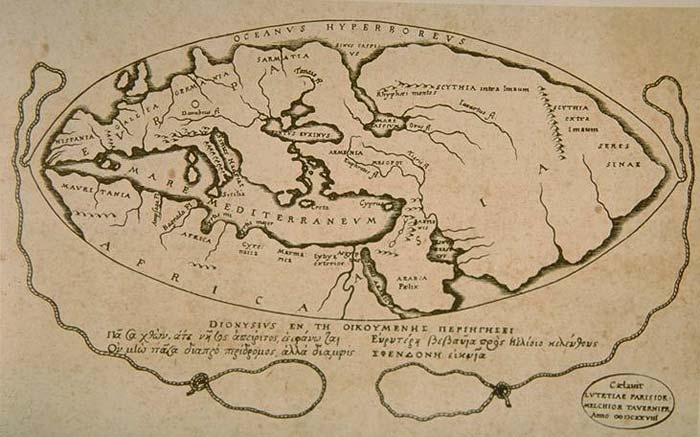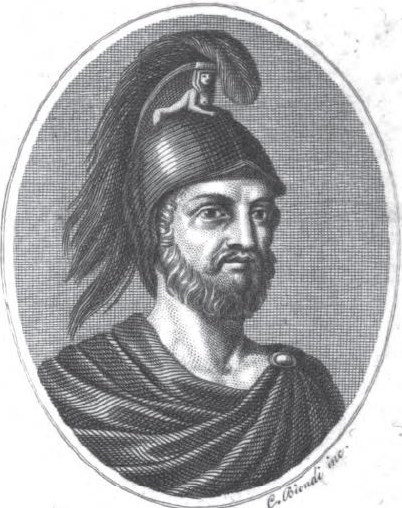|
Bibliotheca Historica
''Bibliotheca historica'' ( grc, Βιβλιοθήκη Ἱστορική, ) is a work of universal history by Diodorus Siculus. It consisted of forty books, which were divided into three sections. The first six books are geographical in theme, and describe the history and culture of Egypt (book I), of Mesopotamia, India, Scythia, and Arabia (II), of North Africa (III), and of Greece and Europe (IV–VI). In the next section (books VII–XVII), he recounts human history starting with the Trojan War, down to the death of Alexander the Great. The last section (books XVII to the end) concern the historical events from the successors of Alexander down to either 60 BC or the beginning of Caesar's Gallic War in 59 BC. (The end has been lost, so it is unclear whether Diodorus reached the beginning of the Gallic War, as he promised at the beginning of his work, or, as evidence suggests, old and tired from his labors he stopped short at 60 BC.) He selected the name "Bibliotheca ... [...More Info...] [...Related Items...] OR: [Wikipedia] [Google] [Baidu] |
Hecataeus Of Abdera
:''See Hecataeus of Miletus for the earlier historian.'' Hecataeus of Abdera or of Teos ( el, Ἑκαταῖος ὁ Ἀβδηρίτης), was a Greek historian and Pyrrhonist philosopher who flourished in the 4th century BC. Life Diogenes Laërtius (ix.61) relates that he was a student of Pyrrho, along with Timon of Phlius and Nausiphanes of Teos, and includes him among the Pyrrhoneans. Diodorus Siculus (i.46.8) tells us that Hecataeus visited Thebes in the times of Ptolemy I Soter, and composed a history of Egypt. Diodorus supplies the comment that many additional Greeks went to and wrote about Egypt in the same period. The ''Suda'' gives him the nickname, 'critic grammarian' and says that he lived in the time of the successors to Alexander. Works No complete works of Hecataeus have survived, and our knowledge of his writing exists only in fragments located in various ancient Greek and Latin authors' works. Fourteen fragments survive, most of which concern religion. Eight ... [...More Info...] [...Related Items...] OR: [Wikipedia] [Google] [Baidu] |
Constantine VII
Constantine VII Porphyrogenitus (; 17 May 905 – 9 November 959) was the fourth Emperor of the Macedonian dynasty of the Byzantine Empire, reigning from 6 June 913 to 9 November 959. He was the son of Emperor Leo VI and his fourth wife, Zoe Karbonopsina, and the nephew of his predecessor Alexander. Most of his reign was dominated by co-regents: from 913 until 919 he was under the regency of his mother, while from 920 until 945 he shared the throne with Romanos Lekapenos, whose daughter Helena he married, and his sons. Constantine VII is best known for the '' Geoponika'' (τά γεοπονικά), an important agronomic treatise compiled during his reign, and three, perhaps four, books; '' De Administrando Imperio'' (bearing in Greek the heading Πρὸς τὸν ἴδιον υἱὸν Ῥωμανόν), '' De Ceremoniis'' (Περὶ τῆς Βασιλείου Τάξεως), '' De Thematibus'' (Περὶ θεμάτων Άνατολῆς καὶ Δύσεως), and '' Vita Bas ... [...More Info...] [...Related Items...] OR: [Wikipedia] [Google] [Baidu] |
Constantinian Excerpts
The ''Constantinian Excerpts'' was a 53-volume Greek anthology of excerpts from at least 25 historians. It was commissioned by the Byzantine emperor Constantine VII (945–959), but probably not completed until after his death. Today only two volumes survive complete plus fragments of three others. The titles of 21 other volumes are known. The volumes are typically known by their Latin titles. The title of the whole, ''Excerpts'', is also conventional. The original work may not have been truly a selection of excerpts so much as an anthology of whole texts rearranged thematically. According to the preface, the project involved taking the works of selected historians and rearranging their passages by topic rather than chronology so that "nothing contained in the texts would escape this distribution into subjects; by this division according to the content nothing of the continuous narration is omitted, but rather it is preserved entire." Nonetheless, there is evidence of abridgement. T ... [...More Info...] [...Related Items...] OR: [Wikipedia] [Google] [Baidu] |
Photios I Of Constantinople
Photios I ( el, Φώτιος, ''Phōtios''; c. 810/820 – 6 February 893), also spelled PhotiusFr. Justin Taylor, essay "Canon Law in the Age of the Fathers" (published in Jordan Hite, T.O.R., & Daniel J. Ward, O.S.B., "Readings, Cases, Materials in Canon Law: A Textbook for Ministerial Students, Revised Edition" ollegeville, MN: The Liturgical Press, 1990, p. 61 (), was the ecumenical patriarch of Constantinople from 858 to 867 and from 877 to 886. He is recognized in the Eastern Orthodox Church as Saint Photios the Great. Photios is widely regarded as the most powerful and influential church leader of Constantinople subsequent to John Chrysostom's archbishopric around the turn of the fifth century. He is also viewed as the most important intellectual of his time – "the leading light of the ninth-century renaissance". He was a central figure in both the conversion of the Slavs to Christianity and the Photian schism, and is considered " e great systematic compiler of the Ea ... [...More Info...] [...Related Items...] OR: [Wikipedia] [Google] [Baidu] |
Posidonius
Posidonius (; grc-gre, Ποσειδώνιος , "of Poseidon") "of Apameia" (ὁ Ἀπαμεύς) or "of Rhodes" (ὁ Ῥόδιος) (), was a Greek politician, astronomer, astrologer, geographer, historian, mathematician, and teacher native to Apamea, Syria. He was considered the most learned man of his time and, possibly, of the entire Stoic school. After a period learning Stoic philosophy from Panaetius in Athens, he spent many years in travel and scientific researches in Spain, Africa, Italy, Gaul, Liguria, Sicily and on the eastern shores of the Adriatic. He settled as a teacher at Rhodes where his fame attracted numerous scholars. Next to Panaetius he did most, by writings and personal lectures, to spread Stoicism to the Roman world, and he became well known to many leading men, including Pompey and Cicero. His works are now lost, but they proved a mine of information to later writers. The titles and subjects of more than twenty of them are known. In common with othe ... [...More Info...] [...Related Items...] OR: [Wikipedia] [Google] [Baidu] |
Polybius
Polybius (; grc-gre, Πολύβιος, ; ) was a Greek historian of the Hellenistic period. He is noted for his work , which covered the period of 264–146 BC and the Punic Wars in detail. Polybius is important for his analysis of the mixed constitution or the separation of powers in government, his in-depth discussion of checks and balances to limit power, and his introduction of "the people", which influenced Montesquieu's '' The Spirit of the Laws'', John Locke's '' Two Treatises of Government'', and the framers of the United States Constitution. The leading expert on Polybius for nearly a century was F. W. Walbank (1909–2008), who published studies related to him for 50 years, including a long commentary of his ''Histories'' and a biography. Early life Polybius was born around 200 BC in Megalopolis, Arcadia, when it was an active member of the Achaean League. The town was revived, along with other Achaean states, a century before he was born. Polybius' father, Lyc ... [...More Info...] [...Related Items...] OR: [Wikipedia] [Google] [Baidu] |
Timaeus (historian)
Timaeus of Tauromenium ( grc, Τιμαῖος; born 356 or 350 BC; died ) was an ancient Greek historian. He was widely regarded by ancient authors as the most influential historian between the time of Ephorus (4th century BC) and Polybius (2nd century BC). In the words of scholar Lionel I. C. Pearson, Timaeus "maintained his position as the standard authority on the history of the Greek West for nearly five centuries." Biography Timaeus was born 356 or 350 to a wealthy Greek family in Tauromenium (modern Taormina), in eastern Sicily. His father, Andromachus, was a dynast who had been ruling Tauromenium since 358 after he seized the city from Dionysius of Syracuse. In 316 or 315 BC, Timaeus is said to have been driven out of Sicily by Agathocles, the tyrant of Syracuse, possibly because of his hostility towards him, although it is likely that he left his hometown considerably earlier. Timaeus stated that he spent at least 15 years in Athens, where he studied under Philiscus of M ... [...More Info...] [...Related Items...] OR: [Wikipedia] [Google] [Baidu] |
Philistus
Philistus ( grc-gre, Φίλιστος; c. 432 – 356 BC), son of Archomenidas, was a Greek historian from Sicily. Life Philistus was born in Syracuse around the time the Peloponnesian War began. He was a faithful supporter of the elder Dionysius, and commander of the citadel. Cicero, who had a high opinion of his work, called him the miniature Thucydides (''pusillus Thucydides''). He was admitted by the Alexandrian critics into the canon of historiographers, and his work was highly valued by Alexander the Great. Philistus was quite wealthy. Before his rise to power, Dionysius criticized the generals of Syracuse on their poor performance against the Carthaginians. When the assembly fined Dionysius for his seditious language, Philistus stepped in to pay Dionysius' fines, with the promise to continue paying for them so long as the council saw fit to issue them. It was through Philistus' support that Dionysius was able to rise to power and control Syracuse. In 386 BC, Philistus ... [...More Info...] [...Related Items...] OR: [Wikipedia] [Google] [Baidu] |
Diyllus
Diyllus ( grc-gre, Δίυλλος), probably the son of Phanodemus the Atthidographer (a chronicler of the local history of Athens and Attica Attica ( el, Αττική, Ancient Greek ''Attikḗ'' or , or ), or the Attic Peninsula, is a historical region that encompasses the city of Athens, the capital of Greece and its countryside. It is a peninsula projecting into the Aegean Se ...), wrote a universal history of the years 357–296 BC. His work seems to have been a continuation of Ephorus' history, and was itself continued by Psaon of Plataea. The work was in 26 books, though only fragments survive. Both the historian Diodorus Siculus and the biographer Plutarch valued Diyllus as a competent authority. References *Felix Jacoby, ''Die Fragmente der griechischen Historiker'', (1923). *Albin Lesky, ''A History of Greek Literature'', (1966). *''Oxford Classical Dictionary'' (1949). * Christopher Tuplin, "Universal Histories (''Hellenica'')", in Marincola (ed.) ''A ... [...More Info...] [...Related Items...] OR: [Wikipedia] [Google] [Baidu] |
Duris Of Samos
Duris of Samos (or Douris) ( grc-gre, Δοῦρις ὁ Σάμιος; BCafter 281BC) was a Greek historian and was at some period tyrant of Samos. Duris was the author of a narrative history of events in Greece and Macedonia from 371BC to 281BC, which has been lost. Other works included a life of Agathocles of Syracuse and a number of treatises on literary and artistic subjects. Personal and political life Duris claimed to be a descendant of Alcibiades. He had a son, Scaeus, who won the boys' boxing at the Olympian Games "while the Samians were in exile"; that is, before 324BC. From 352 to 324 Samos was occupied by Athenian cleruchs who had expelled the native Samians. Duris therefore may well have been born at some date close to 350BC, and, since his main historical work ended with the death of Lysimachus in 281 BC, must have died at an unknown date after that. Some modern sources assume that the Olympic victor Scaeus must have been the father, not the son, of the historia ... [...More Info...] [...Related Items...] OR: [Wikipedia] [Google] [Baidu] |
Hieronymus Of Cardia
Hieronymus of Cardia ( el, Ἱερώνυμος ὁ Καρδιανός, 354?–250 BC) was a Greek general and historian from Cardia in Thrace, and a contemporary of Alexander the Great (356–323 BC). After the death of Alexander he followed the fortunes of his friend and fellow-countryman Eumenes. He was wounded and taken prisoner by Antigonus, who pardoned him and appointed him superintendent of the asphalt beds in the Dead Sea. He was treated with equal friendliness by Antigonus's son Demetrius, who made him polemarch of Thespiae, and by Antigonus Gonatas, at whose court he died at the purported age of 104. He wrote a history of the Diadochi and their descendants, encompassing the period from the death of Alexander to the war with Pyrrhus (323–272 BC), which is one of the chief authorities used by Diodorus Siculus (xviii.–xx.) and also by Plutarch in his life of Pyrrhus. He made use of official papers and was careful in his investigation of facts. The simplicity of his st ... [...More Info...] [...Related Items...] OR: [Wikipedia] [Google] [Baidu] |



